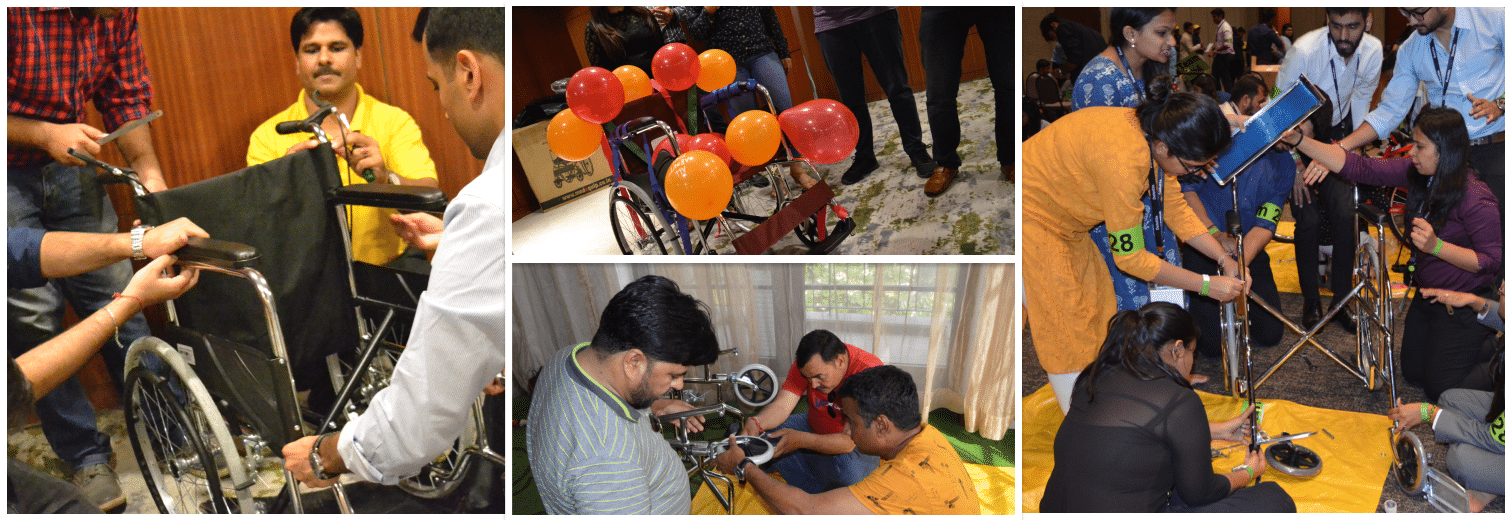Virtual team building has slowly made itself the main topic of discussion across organisations, thanks to remote and blended working cultures in the last two years. However, remote working brings with it, a host of new challenges. Something as simple as the morning greetings, water cooler reprieve, and a multitude of similar things are now missing from our daily work day. This, in turn, can cause your team members to drift apart and affect their inter-personal relationships.
So, how can you help ease the seemingly lack of trust and bond among your team members?
Organisations, across industries have started incorporating the concept of virtual team building activities into their work culture. Simple, engaging virtual sessions where team members get to play games and may be even discover more about each other. However, the question that remains is –
Can such activities help develop & re-affirm trust across remotely operational teams?
The answer lies in the activities you choose. And, even more importantly, what drives those activists? Instead of simply relying on engaging fun filled activities, leaders need to take a deeper look into their organisational culture and processes. A new working landscape requires new strategies, across the entire organisational structure. Your efforts have to prove fruitful in fostering emotional closeness, rapport, and building trust.
Presenting a few key focus points that may help you build and maintain trust even across remote team members –
Strengthen Your Onboarding Process
Table of Contents
One of the primary things for leaders to focus on, is ensuring robust and effective onboarding processes. Help your new members start off on the right foot. Effective trust is built on interpersonal bonds rooted in care and healthy camaraderie. A few key factors to be considered while welcoming new team members, remotely, include –
- Provide initial context about the company, team, and individual roles and responsibilities:
You can prepare brief write-ups about the company history, the purpose and mission statements, along with fun facts about the key milestones. Moreover, you need to brief the new hires about the work culture and how the communication and meetings are conducted. - Give them a clear direction about the project:
Help them get a clear understanding of their first project and explain to them how their efforts are going to look like over the first month and going forward. - Create a sense of rapport:
Conduct one-on-one meetings with their immediate team members. It helps to ask them about their work preferences or any expectations they might be having. It will show them that you care and build rapport faster.
Ditch the clichéd ice-breakers

“So, how did your weekend go?”
How many times have you used to start a conversation with your team? – Probably more than you would like. And that’s probably how your team feels about it, as well. Thus, instead of trying something basic, why not experiment with something unconventional to shift the mood for your employees and move a step closer towards effective trust building?
Here are a few fun and engaging questions that you can ask instead –
- What’s your guilty pleasure during this quarantine?
- How did you feel about the recent movie that you watched? Would you recommend it to us?
- Tell us about the three most inspiring people in your lives.
- What’s your favorite thing to do on a vacation?
- What are you reading currently?
You can come up with your set of fun questions and watch the team meetings come alive with engaging conversations and active participation.
Assign ‘Buddies’ to your new members
An excellent way to build effective trust among remote employees is to incorporate a buddy system into their induction program.As a part of this system, employees are assigned a team member with their line manager. Their main responsibility is to guide the new members through their responsibilities and help them succeed in their role.
Wondering how to implement an effective buddy system within your own ecosystem?
Here are a few ideas that might help –
- You can pick someone from within the team with ample experience across different company projects. They can be given the role of the official mentor for the new member. They can then schedule regular one-on-one meetings with the team members discuss any issues the new joiner might be facing and how to get better at their tasks.
- You can pair two to three people randomly every week and set them up on a virtual chat over things unrelated to work.
Set up a channel for casual conversations unrelated to work

Speaking of conversations unrelated to work, they are essential to building trust in a team. A safe space, albeit virtual, where employees develop natural social connections is required for teams to continue feel motivated and thrive at work.
Remote work makes social interactions an impossibility for most team members. What can help ease this distance is to create a virtual channel where employees can be encouraged to post or chat about light and casual things. Here are a few examples of how you can do the same and encourage casual chats as part of their virtual team building activities during quarantine –
- Create a channel with the name, “Paws n tales”, or “Pet Culture”, or anything you like and dedicate it to pet-related discussions. People can share pictures and videos of their pets on this channel as well
- Dedicate a channel for happy hours on Friday nights. You can encourage people to bring up their fun selves in the virtual meet, on drinks. But it doesn’t have to be this all the time.
You can come up with new sessions that allow everyone to unwind themselves and relieve the daily stress. Organising culinary classes or virtual potlucks are good examples.
Find your own rhythm
Just like every family is unique in their own right, each team has their own quirks and culture. Thus, it is important for you to figure out what works best for your team. From understanding what your team members need to getting your new members to connect with the old – every little thing matters.
What remains undeniable is that to build a robust virtual team, primarily focus should be on fostering inter-personal trust among your team members. It will help you create an exceptional team culture and performance that can exceed your expectations. Trust is the oil that will help your team’s engine up and running and reach its goals.





